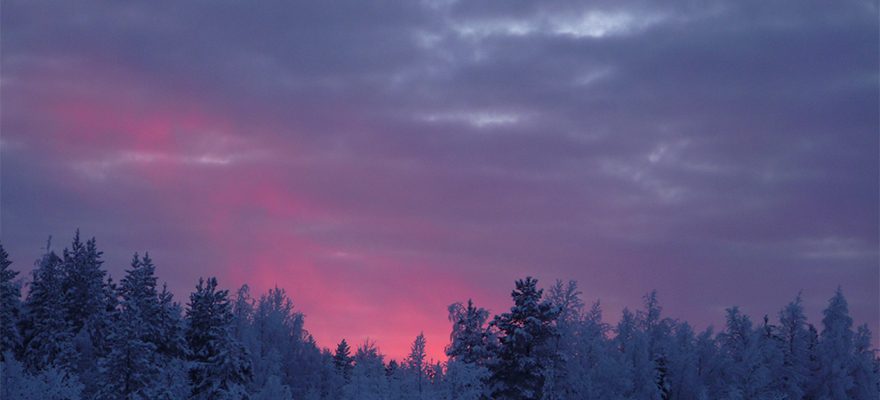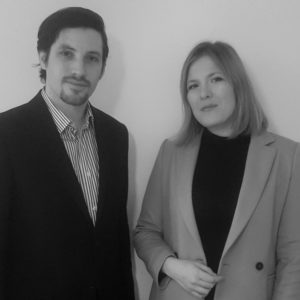

Sébastien Lachaussée & Elisa Martin-Winkel
Coproducing with Scandinavian countries
During last Cannes Film Festival « Wolf and Sheep » selected at the Director’s fortnight testified of the French-Scandinavian relationships toward films’ coproduction. Indeed, Adeimat Film in Denmark and La Fabrica Nocturna in France have coproduced this first Afghani movie.
More traditional and less recent, « Sons of Norway» also is an impressive example of French-Scandinavian collaboration. Its production gathers France, Denmark, Sweden and Norway and has bee supported by Eurimages Fund.
These examples are not isolated and we are going to linger on how such coproductions may be favored.
1) French-Swedish coproduction:
Since 1965 France and Sweden benefit from a coproduction agreement, which allows the films coproduced between the two countries to be considered as national films in both countries. Nonetheless the terms of this coproduction agreement are quite strict: The proportions contributed by the respective producers from both countries shall be between 30
and 70 % per film and the minority participation may not be less than 30% of the film production cost and each country’s technical and artistic contribution shall be made in the same proportion as the financial investments.
Moreover this agreement predicts, “A general balance over all films co-produced during a year must be maintained, both as regards financial and artistic means and use of the technical resources of the two countries”. Therefore it is understood that French-Swedish coproduction is based on a real share of skills and means to promote national films of both countries.
Within the frame of these official coproductions Sweden offers producers some interesting financial supports, at both national and regional scales/
National support : Swedish Film Institute :
Swedish Film Institute offers a « Minority coproductions scheme » that supports movie coproduction that involved a Swedish producer. This support is selective and refundable and benefits from a 1 320 000 euros annual budget. It may support a film up to a maximum of 80% of the film’s budget.
The required criteria to obtain the support are pretty narrow : the partnership between the coproducers must be long-lasting, financing plan and distribution plans must be transmitted and Swedish producer must be in charge of all artistic, financial and technical decisions in Sweden. Finally, the allocated sums are required to be spent locally spent.
Regional funds:
Many Swedish regions offer support mechanisms for cinematographic productions. We will not detail every region but we can notably evoke Stockholm, Skane and Västra-Götaland funds.
The region of Stockholm proposes a selective a refundable support for movie producers and may contribute to the film financing up to a 100 000€ maximum amount. This amount must be entirely spent in the region. It is also required that a distributor must be confirmed for the Swedish release of the Film.
In Skane the fund Film i Skane also supports the cinematographic production with an annual budget of 1,2M €. This aid is selective and refundable and the localization of the expenses is severe: 200% of the allocated sums must be spent in the region. Moreover the support is limited to 300 000 € an/or 20%of the budget of the film for with the support is granted. It is finally provided that the films that promote the regional talents are priority and that financial coproductions are expressly excluded.
Finally, Film Väst Fund has a larger annual budget of 11,3M € and can support a film financing up to an amount of 2M€ within the limit of 10 to 30% of the film’s budget. This support is selective and refundable and must be integrally spent in the region. This support comes with important requirements: most of the financing must be secured, the technical crew must be composed of 70% of local technicians for Swedish movies and 50% for foreign movies and distributors for the film must have been confirmed.
As example we can mention the production of the film « Dans la forêt » which is a collaboration between the French production company les Films de Françoise and the Swedish producer Gota Films. We can also draw your attention on « Snow therapy » which production gathers the French fund Rhône-Alpes cinéma, the French producers Coproduction Office and la Société parisienne de production, the Swedish producer Plattform Produktion and the production company Motlys in Norway.
It is important to underline here that French and Norway do not have entered any coproduction agreement. Nonetheless we are going to discuss some of the available Norwegian funds.
2) Overview of the available Norwegian supports :
Norwegian Film Institute :
Norwegian Film Institute offers a production fund and, as Sweden, a « Minority Coproduction Scheme ».
Production support is selective but does not require answering to a cultural test nor implies a location of the expenditures. The maximum amount goes from 500 000 euros for minority coproductions to 3M euros. Submission shall be made by a Norwegian production company or by a company from a EEA members registered in Norway. It is to be highlighted that this support is not recoupable and thus particularly interesting.
« Minority Coproduction Scheme » is also a selective and non-refundable, with no requirement for the location of expenditures. Nethertheless its annual budget is rather low: 1,52 M€.
Its contribution is limited to 50% of the film’s budget and goes from 50 000 to 500 000 € depending on the film’s specificities.
Finally Norwegian Film Institute is also in charge of an Incentive for International films & Series in Norway. This tax incentive consists of a cash grant up to 25% of the Norwegian eligible expenses.
Regional funds:
Norway also has several regional funds that support length feature films’ production, among which stand out Film Fund Fuzz and Filmcamp AS.
Film Fund Fuzz has a 3M € annual budget and offers a selective and refundable support. This grant varies from 20 to 100% of the Norwegian share of coproduction and implies the regional location of the expenditures. Every year the fund contributes to the financing of 2 Norwegian majority coproduction and 10 minority coproductions.
Filmcamp AS has a much smaller budget with 1,2 M euros per year. It offers a selective and refundable grant limited to 475 000 euros and 20% of a film’s budget. It obviously implies a regional location of expenditures. Of a smaller magnitude, this fund supports only 4 Norwegian majority coproductions per year.
3) Coproducing with France and Danemark
Less old than the French-Swedish agreement and entered in 1975, French-Danish coproduction agreement is, nonetheless, slightly more flexible and a distribution of the contributions between 75 et 25% of the film’s budget.
Still, here again each country shall contribute at an artistic and technical level in the same proportion as its financial investment.
National supports : Danish Film Institute
Danish Film Institute offers various financial supports for film producers.
As in Sweden a “minority coproduction scheme” is available. It is granted with an annual budget of 1,650 M€. This support is selective and recoupable but does not require a cultural test. It can contribute to a film financing up to a maximum of 400 000 euros subject to al limit of 60% of the film budget and implies a location of expenditures. We could mention “Back Home” of Joachim Trier as recent recipient of this fund, this film has been coproduced in France by Memento Films and in Denmark by Nimbus Film Productions.
Furthermore a “Market scheme” is obtainable, with a higher annual budget of 6,3 M€ and a financial support that can be up to one million euros and 40% of a film budget. This support is also selective and recoupable but does no require a cultural test and does not imply a location of expenditures. However, 60% of the film financing must be obtained (excluding any other financing to come from the Danish Film Institute) and a distribution agreement must be signed with a Danish distributor.
Finally a “Commissionner Scheme” may be solicited with the same requirements. Its annual budget is larger, 9,5M€ but the financing support allocated is subject to location of expenditures and must be spent in Denmark
Regional funds:
Through the Copenhagen Film Fund, city of Copenhagen offers a production aid. This fund has a 3,9 M€ annual budget and contribute to film financing with a maximum amount of 500 000 €. This aid is selective, recoupable and implies a location of expenditures. It is also required that 60% of the film financing must be gathered and a distributor and international seller must have been found.
West Danish Film Fund and Film Fyn also offers regional supports, both selective and recoupable. To do so, these organizations have annual budgets of 1,6 M€. In both cases the films must foster a local emulation and local employments and the location of expenditures is very important : 160% of the allocated sul for Film Fyn and 200% for the West Danish Film Fund.
Regarding French-Danish movie production it is obvious to evoke Lars Von Trier movies as “Melancholia” a French-Swedish-Danish coproduction involving notably Arte and Canal plus and “Nymphomaniac” coproduced by the French company Les films du Losange. Both films have also been coproduced with the French producer Slot Machine. We can also mention the animated movie “« Long Way North» jointly produced by Sacrebleu Productions and Maybe Movies in France an Noerlum Studio in Denmark with the support of several French regions, of the French CNC, of the Danish Film Institute and the Copenhagen Film Fund.
4) Coproducing with France and Finland
French-Finnish coproduction agreement came into effect in 1983. It requires a general balance between the technical and artistic contributions of the coproducers, while the financial contributions may vary from 30 to 70% of the film budget.
Finland is a small country and only has a single support system for the cinematographic production: Finnish Film Foundation. This national organization offers a film financing support selective and refundable that is rather obtainable, as it requires neither cultural test nor location of expenditures. It is to be noted that, with an annual budget of 15 millions euros and a financing that can be up to 500 000 euros for a coproduction project, this aid is particularly interesting for the producers.
As example of films supported by Finnish Film Foundation we can mention Aki Kaurismaki’s movie “Le Havre” coproduced by the French producer Pyramide and the Finnish company Sputnik, that also benefited from the supports of the Finnish Tv channel Yle and Arte. Pictak in France and Handle Productions in Finland also represent animated movies with the example of the feature length film “Moomins on the Riviera” that they coproduced.
5) Supranational funds available for Scandinavian coproductions :
Scandinavian producers may seek the support of the Nordisk Film and TV Fund. This supranational fund aims to ensure the development of Scandinavian productions (Denmark, Sweden, Norway, Iceland and Finland). Thus, this fund offers a support for animated and fiction features films with an annual budget quite significant of 10 M €. This grant is selective and refundable and may support a film financing subject to a limit of 500 000 euros and 10% of the film budget. This support implies a location of expenditures in members countries.
Finally it is important to point out that all Scandinavian countries, including Norway, are members of Eurimages Fund, the European cinema support fund. Eurimages supports coproduction between at least two members of the fund. The submitted projects must have gathered 50% of their financing. Eurimages support takes the form of soft loans, repaid on the bases of revenues generated by the project supported. Eurimages support is consequent and can be up to 500 00 euros subject to the limit of 17% of the production cost of the film.
The above-mentioned mechanisms are unfortunately often unrecognized by French producers, and more coproductions with Scandinavian states should be considered.
SHARE THIS ARTICLE
CONTACT
OUR OFFICES
INFORMATION
sl@avocatl.com
PHONE
+33.1.83.92.11.67
Address
121, boulevard de Sebastopol
75002 Paris
5th floor / Staircase A
Follow us :
Newsletter
Please enter your e-mail :
